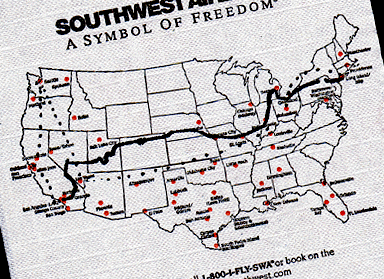While it was hard to catch in the never ending stream of supposed “news” coverage of some dead singing weirdo, one of the 20th century’s most important figures died this week: Robert S. McNamara. Best known as Kennedy & LBJ’s Secretary of Defense, essentially the man responsible for the US’ involvement in the Vietnam war, McNamara was also an executive at the Ford Motor Company. At Ford he is credited with the Falcon, and therefore virtually all of Ford’s subsequent small cars. McNamara also served in the USAAF in WW2, as well as a stint at the World Bank, seemingly the traditional home of disgraced members of the Executive branch.
To me he was always portrayed as a villian in history, both in the White House and at Ford. My eyes were opened to a new perspective when I viewed the Oscar-winning documentary “The Fog of War” a few years ago. It is literally a conversation with the man himself, and in it he reveals and reviews his errors, and draws lessons from them. It is truly wisdom passed on from an elder, and digestion of it should be required for anyone who find themselves in a position of leadership. McNamara breaks down his experience into eleven life lessons:
R.S. McNamara’s eleven life lessons
1. Empathize with your enemy
2. Rationality will not save us
3. There’s something beyond one’s self
4. Maximize efficiency
5. Proportionality should be a guideline in war
6. Get the data
7. Belief and seeing are often both wrong
8. Be prepared to reexamine your reasoning
9. In order to do good, you may have to engage in evil
10. Never say never
11. You can’t change human nature
These lessons were foremost in his mind as not long before the documentary was made, McNamara wrote a book which applied many of these lessons unlearned had failed us in Vietnam:
Eleven lessons from the Vietnam War
1. We misjudged then — and we have since — the geopolitical intentions of our adversaries … and we exaggerated the dangers to the United States of their actions.
2. We viewed the people and leaders of South Vietnam in terms of our own experience … We totally misjudged the political forces within the country.
3. We underestimated the power of nationalism to motivate a people to fight and die for their beliefs and values.
4. Our judgments of friend and foe, alike, reflected our profound ignorance of the history, culture, and politics of the people in the area, and the personalities and habits of their leaders.
5. We failed then — and have since — to recognize the limitations of modern, high-technology military equipment, forces, and doctrine.
6. We failed, as well, to adapt our military tactics to the task of winning the hearts and minds of people from a totally different culture.
7. We failed to draw Congress and the American people into a full and frank discussion and debate of the pros and cons of a large-scale military involvement … before we initiated the action.
8. After the action got under way, and unanticipated events forced us off our planned course … we did not fully explain what was happening, and why we were doing what we did.
9. We did not recognize that neither our people nor our leaders are omniscient. Our judgement of what is in another people’s or country’s best interest should be put to the test of open discussion in international forums. We do not have the God-given right to shape every nation in our image or as we choose.
10. We did not hold to the principle that U.S. military action … should be carried out only in conjunction with multinational forces supported fully (and not merely cosmetically) by the international community.
11. We failed to recognize that in international affairs, as in other aspects of life, there may be problems for which there are no immediate solutions … At times, we may have to live with an imperfect, untidy world.
Underlying many of these errors lay our failure to organize the top echelons of the executive branch to deal effectively with the extraordinarily complex range of political and military issues.
In reality these lessons do not really limit themselves to the conflict in southeast Asia in the 1960s ad 1970s, in fact they apply to virtually any conflict between nation-states. Substitute the word ‘Iraq’ into any of these lessons and you will find that they apply. It is a shame that this level of review was not considered in 2002/2003. The human and monetary capital saved would have been astounding.
Isn’t the life and lessons of this man far more important to our country than a dead drug-addled, gender/race-confused, singing-dancing, whack-job? Why is the media so obsessed with the latter, and ignoring the former? Do any of you wonder why I don’t watch television anymore? If so your answer is found in this situation.
Instead of watching the 24hr news cycle’s circle jerk over “MJ”, pull up a chair and watch The Fog of War right here. (Or go rent the DVD if image quality and sync issues drive you crazy.) There are many, many moments within it that are profoundly thought-provoking – such as at the 42 minute mark. The depth and impact of these words about and on humanity truly put the meaninglessness of the gloved one in perspective.
Your brain will thank you for it.






